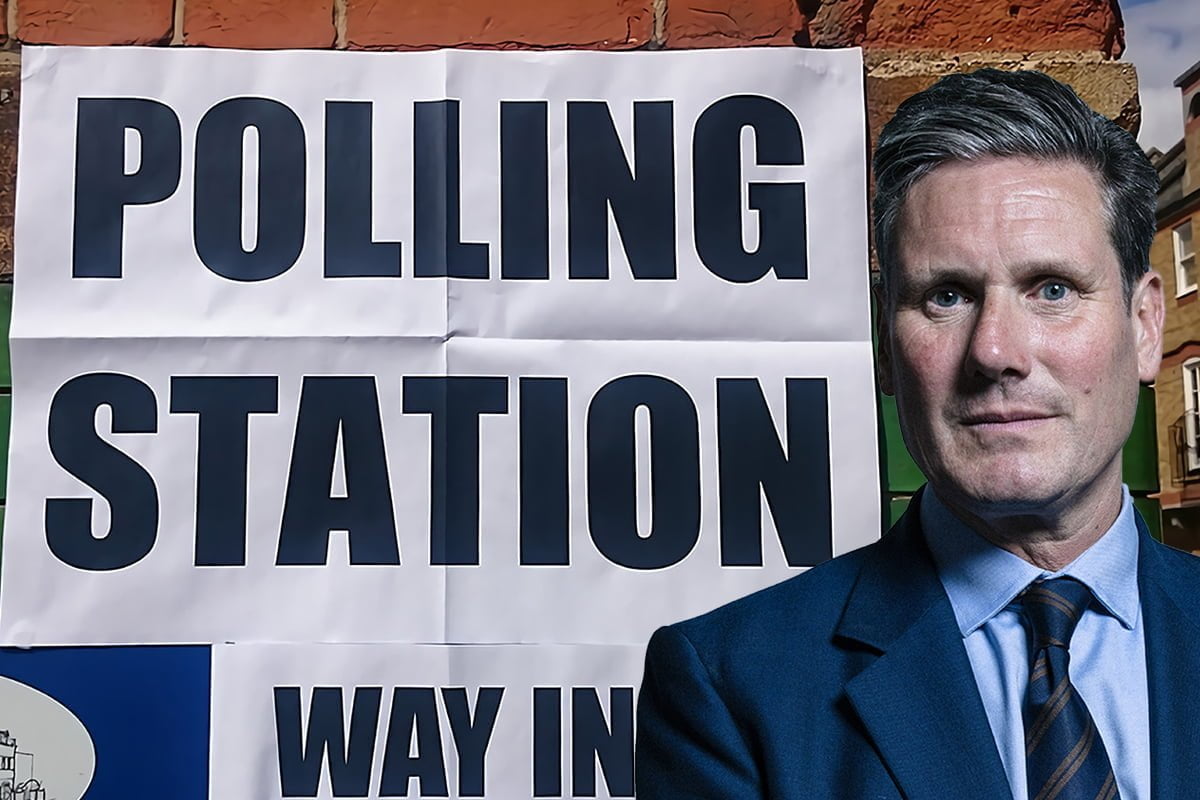The right wing in the Labour Party is seeking to make support for proportional representation a key party policy. The left should steer clear of this establishment trap, which would only push Labour further down the path of class collaboration.
Following the 2019 general election, a layer of Labour MPs have pushed the idea that it’s somehow no longer possible for the party to win a majority under the first-past-the-post (‘FPTP’) electoral system.
They argue that to defeat the Tories, Labour must change the voting system to some form of proportional representation (‘PR’).
As socialists, we must make clear that although the FPTP system is not without its problems, the only way to defeat the Tories is politically – on the basis of a bold socialist programme that addresses the burning problems faced by millions of workers and youth.
Attempts to find a shortcut through tweaking the electoral system are at best a distraction from this urgent task. At worse, they risk trapping Labour further down the path of class collaboration, which would only pave the way for another Tory election victory.
‘Neglected’
The Labour leadership is set to examine the case for electoral reform, with one in four Constituency Labour Parties (CLPs) recently passing motions calling for PR.
The campaign is being pushed by Labour for a New Democracy. This is an umbrella organisation that includes a number of right-wing Labour think-tanks. Revealingly, it also prominently features pro-Remain organisations that helped push Labour to its electoral defeat in 2019.
It’s even more important to join LCER and campaign to change the voting system. We have a government with 56% of the seats on 43% of the vote. Labour must reject First Past the Post.
Join us at https://t.co/xBnj62FTwF— LCER (@Labour4PR) December 14, 2019
According to Labour for a New Democracy, so the argument goes, FPTP puts the emphasis of campaigning on ‘swing voters’, rather than ‘neglected voters’.
It is true that a large number of people do not feel that voting will make any difference to their lives. Even in the 2019 general election, only 67% of the electorate turned out to vote.
But at the root of this problem is a feeling by many that if elected, Labour in power would not fundamentally transform their lives. The only way to cut across this is on the basis of a radical socialist programme, that takes aim against the whole rotten establishment.
Class collaboration
 We must be clear: It wasn’t the electoral system that caused Labour to lose in 2017, or in 2019. It was the right-wing saboteurs in the Parliamentary Labour Party (‘PLP’), who undermined the leadership and the movement for a Labour government at every opportunity.
We must be clear: It wasn’t the electoral system that caused Labour to lose in 2017, or in 2019. It was the right-wing saboteurs in the Parliamentary Labour Party (‘PLP’), who undermined the leadership and the movement for a Labour government at every opportunity.
Most significant to Labour’s defeat was its position on Brexit, orchestrated chiefly by none other than ‘Sir’ Keir Starmer. This put Labour in the position of defending the interests of big business and the establishment, rather than take an independent class-based position.
Yet it is the same people who pushed Labour down the path of a second referendum, who are now bangining the drum most loudly for electoral reform.
It is not any love of abstract ‘democracy’ that is driving these people forward. Whilst they are mobilising to ‘democratise’ the electoral system, they are at the same time clamping down hard on internal democracy within the Labour Party.
Over the past year we have seen a wave of suspensions, expulsions, and bans on discussion – all as a means to stifle the left.
The prominent involvement of pro-EU pressure groups in the PR campaign reveals their true intentions – to form a cross-party alliance in parliament; one that will serve the interests of big business better than the Tories.
The serious strategists of capital feel they can no longer rely on the Tories to represent their interests. Through Keir Starmer and the Labour right wing, they are fighting hard to drive the left out of the party, in order to make it a safe pair of hands for big business.
But the outcome of the civil-war in Labour is by no means decided.
As an extra insurance policy, the ruling class strategists are therefore preparing the ground for Labour to enter a coalition government – in the ‘national interest’ of course.
A change to PR would in fact increase the strength of the Liberal Democrats in any such coalition. This, in turn, would increase the pressure on Labour to toe the line of the establishment.
Coalition
Of course the Labour right wing are not so open about their true intentions. In order to sell PR, it is dressed up as simply a means for ‘parties on the left’ to beat the Tories.
Indeed the Labour for a New Democracy model motion states: “In 19 of the last 20 general elections, parties to the left of the Conservatives won the popular vote, yet the Tories have governed for two-thirds of that time.”
The implication of this is that the only way to beat the Tories is through some sort of coalition government of ‘parties to the left of the Conservatives’.
But in reality, this means seeking an alliance with parties to the right of Labour.
Most notable of these are the Liberal Democrats, a party that has proven in practice its readiness to save the establishment when required. In fact, on many economic issues, the Lib Dems are actually to the right of the Tories these days!
Labour came within a whisker of power in 2017 precisely because it stood apart from the Liberals and Tories. In doing so, the Lib Dems were reduced to almost nothing.
The results are almost in for the 2019 UK general election! Check out this #VOTD by @webunknown to learn which parties received the highest number of votes in 2017: https://t.co/bAdp8K3Pw6 pic.twitter.com/f5eUulAF2R
— Tableau Public (@tableaupublic) December 12, 2019
But in 2019, when Labour effectively promoted a liberal position on Brexit, the result was a victory for the Tories.
The lesson is that class collaboration around the ‘centre ground’ does not help Labour into power. Elections are not determined by a simple arithmetic formula of ‘this party plus that party equals power’.
By seeking accommodation with the Lib Dems, Labour would instead be neglecting millions of workers, who would be alienated by such an approach. Many would either not bother voting, or even be pushed into the arms of the Tories.
And by abandoning class issues in favour of what is acceptable to their new liberal friends, the Labour leadership would be leaving the ruling class to fight the election around so-called ‘culture wars’, which divide the working class. As was seen in 2019, this is simply a gift to the Tories.
Some also argue that PR is necessary in order to cut across the so-called ‘Green surge’. It is true that under Starmer, many former Labour supporters have switched allegiances to the Greens.
But the rise of the Green Party is simply the flip side of the rightward shift of the Labour Party leadership under Starmer. Rather than seeking electoral alliances with other parties, socialists in Labour must fight to clear out the pro-establishment wing of the PLP, and change course back to the left.
Unfortunately, the Labour for a New Democracy motion on PR has found its way onto Momentum’s ‘policy primary’ shortlist. Left activists must avoid falling into this trap being set for us by the right wing of the movement.
Instead, we encourage Momentum members to vote for the motions that raise bold socialist measures, such as the motion on “Save our NHS with Socialist Policies”. Only motions such as these – if taken up as Labour Party policy – will inspire and connect with those currently alienated from politics.
No shortcuts
Britain is experiencing its worst crisis for 300 years. Over 150,000 have died, mostly as a result of the Tories’ prioritisation of profits over lives. Whilst millions have been thrust into poverty, the billionaires have got richer and richer.
In these conditions, Labour should be dominating the Tories in the opinion polls.
Unfortunately the leadership of the Labour Party under Keir Starmer doesn’t reflect the growing anger against the establishment felt by millions of workers.
All ‘Sir’ Starmer has to offer is his proposal for ‘British Recovery Bonds’. In essence, this means asking workers – not the bosses – to pay for the crisis. No wonder the Tories are riding high in the polls!
Buy British Recovery Bonds and help the war effort against socialism! pic.twitter.com/I87MmWHanS
— Dr J.-P. Janson De Couët HFA ?????? (@jpjanson) February 18, 2021
To reverse Labour’s electoral fortunes, it must end its policy of class collaboration, and take the fight to the establishment.
This can only be done on the basis of an inspiring socialist programme, not tweaks to the electoral system. After all, electoral reform is hardly going to feature highly on the priorities of those struggling to pay the rent and bills.
Such a programme must break with the rotten status quo. It must solve the key problems faced by millions of workers, including unemployment, workplace safety, housing, and healthcare.
These problems can only be solved by the working class taking power into its own hands. This must include the nationalisation of the commanding heights of the economy, under workers’ control, and the planning of production for need.
But the logic of PR runs counter to this task.
Instead of promoting independent working-class politics, PR is a recipe for further class collaboration with parties to the right of Labour. When it comes to the crunch, parties such as the Lib Dems would never agree to form a government that goes against the interests of the establishment.
Party reform
The working class makes up the overwhelming majority of the population. Labour has the potential to get a landslide under any voting system. But it can only do so if it has a bold socialist programme, based on radical class demands.
This was how Labour won in 1945. Not by fiddling with democratic forms, but by making bold political demands that transformed workers’ lives.
We must therefore steer clear of the trap of electoral reform. Instead the left must take up the fight to transform the Labour Party from top to bottom, starting by clearing out the agents of big business in the PLP.
This means campaigning for open selection, workers’ MPs on worker’s wages, and a radical socialist programme.






